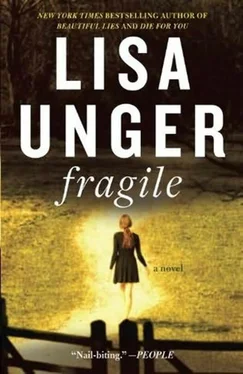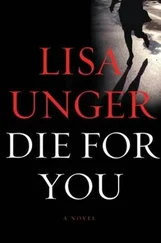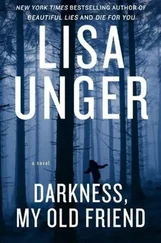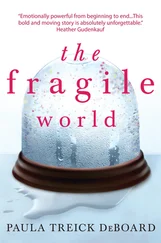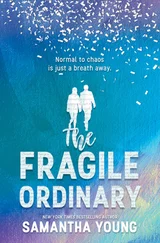Not a run-from-battle kind of coward-not afraid of heights or airplanes or small, enclosed spaces. He was not afraid of duty or responsibility. All of that was easy. What he feared were the long, empty spaces between those things where life was lived.
Melody’s wailing had turned to a low whimper. They were driving through the neighborhood around her house while the other guys knocked on doors and made phone calls. As he drove, his eyes scanned the sides of the road, looking for a dropped book bag, a shred of clothing, anything; he’d asked Melody to do the same. In a busier jurisdiction, there wouldn’t be the manpower or the time to pay so much attention to a kid who’d run away before and probably would again. It wasn’t even protocol. But in a town like The Hollows, where most people knew one another, it just seemed like the right thing to do.
“Where’s Graham?” Jones asked.
“How should I know?” Melody snapped. There was an edgy defensiveness about the way she said it that made him take notice.
“Didn’t you call him to tell him Charlene was missing?”
“Of course I did. His phone was off.” When he didn’t answer, she added, “He said he might go hunting this weekend.”
“It’s after one in the morning and you don’t know where your husband is?” The words sounded hard, judgmental.
“Not everybody has a perfect marriage like you and Maggie,” she said. She had a nasty smile on her face as she drew a pack of cigarettes from her purse.
“Can’t smoke in here, Mel.”
She lit the cigarette anyway and lowered the window. He fought the urge to grab it from her and toss it out onto the street. She had always been a rude, inconsiderate bitch, and he didn’t think Charlene was much better. Smarter, maybe. Better looking than Melody had ever been. But really Charlene was just out for herself, a con looking for a mark; if he’d suspected it before, he knew it now.
They took the road that ran out of the development and wound toward the more rural farm country. Then he took a right onto an unpaved passage that passed over a stone bridge into a thick area of woods. It was a link of wild land between two development neighborhoods, a twenty-acre strip that ran in back of the more expensive homes, so city folks could think they were in the country.
Where Melody and Charlene lived, Whispering Acres was more lower middle class. Back at the precinct house they called it Whimpering Acres because of all the domestic violence calls-an angry husband answering the door, a woman crying behind him. These days you didn’t need the wife to press charges, because they almost never did. But cops rarely hauled the husband away unless they had to, unless the woman was so obviously battered that you couldn’t get around it, unless you knew the next time you came you’d be calling an ambulance or the coroner’s office.
Patrol had been out to Melody and Graham’s plenty of times. Sometimes he was bleeding; sometimes she was. It was always a neighbor who called to complain about the noise. Jones knew what it was like to grow up like that. He felt an unwanted twinge of empathy for Charlene. At least she had the guts to run away from it; he never had. Finally, it was his father who left and never came back.
The Acres wasn’t a bad neighborhood; the streets were lined with average ranches and split-level tract houses. You might find the occasional junker in the drive up on blocks, or clotheslines in the back, a rusty old shed, a side yard cluttered with toys, twisted bicycles. Acres folks didn’t have the time or money to pay much attention to landscaping or to chipping paint or weeds poking through the sparse gravel on the drive-they were working two jobs to make ends meet.
By contrast, in The Oaks, a mile south, the single-story dwellings of The Acres were replaced with towering houses-four or five thousand square feet-surrounded by old-growth trees, meticulous yards, late-model vehicles in three-car garages. Trash cans disappeared as soon as the garbage truck had passed. Driveways were paved with multicolored bricks. Mailboxes stood in carefully groomed flower beds. These were the doctors, the lawyers, the financial professionals who commuted into the city for work each day. During the day, the neighborhood was abuzz with activity, a parade of service professionals-nannies, maids, landscapers, pool cleaners-most of whom lived in The Acres, or in one of the outlying areas around the high school.
Jones’s family didn’t live in either of these neighborhoods, having chosen instead the hipper area off the main square. They called it SoHo, short for South Hollows, which Maggie always found funny, because to her there was only one SoHo and that was in Manhattan. Their restored Victorian sat on a quiet, tree-lined street, just a few blocks from shops, restaurants, the library, a yoga studio. Maggie needed that, having left her life in the city to be with him here. She wanted to be near what little activity the town had to offer. He liked it, too, though initially he didn’t want to live that close to the precinct house. But now that he was watching his weight, it was easy for him to stroll home and eat a healthier lunch. With his total cholesterol over 250 and his weight not far behind, there were no more Philly cheesesteaks, fries, and a large soda sitting in his car with one of the guys. Now it was turkey lasagna at home alone. He wondered if a longer life was worth living if you couldn’t eat whatever the hell you wanted to eat.
Melody released a hacking cough and tossed her cigarette out the window.
“The world is your ashtray, right, Mel?”
“Shut up, Jones. When did you turn into such a self-righteous prick?”
In between The Acres and The Oaks, on the dark, unpaved road, Jones stopped the car. He rolled down the window and took in the cold, quiet air. He could hear the babbling of the little creek that flowed through town. Somewhere deep in the woods, something moved light and quick. A deer, fleeing the sound of the engine, the high beams. Maybe something else.
“What are you doing?” Melody asked.
“I’m just going to look around here a minute.”
He flipped on the rack of lights on the roof, and the area around them flooded in harsh white. Everything beyond the beam disappeared.
He stepped out of the car and looked into the black around them, listened to it. Then he walked down the slope to the bank of the creek, peering under the bridge.
“Why are you doing this?”
Melody had exited the vehicle and came to stand above him, leaning on the stone edge of the bridge.
“This is where they found her body. You remember?”
When he looked at her, she was as white as death.
“Why are you doing this?” she said again. Her voice was a raspy whisper, her face melting in fear and grief. He felt a little jolt of regret. He hadn’t done it to hurt her or to frighten her. He just wanted someone to remember with him, wanted not to be alone with it for once. He saw how wrong that was now.
He shoved his hands in the pockets of his jeans, stared at the black water, the slick stones beneath. “I’m sorry. I didn’t mean-She’s fine , Melody.”
But she had already turned from him and gone back to the SUV. The slamming of the door bounced and echoed all around him. It would have been an ugly thing, a dark and hateful kind of poetry, to walk down here and see Charlene. Was that what he thought he’d find?
Back in the SUV, Melody was weeping again. He climbed in the driver’s side and closed the door, cranked the heat. He’d been sweating this afternoon. Now the air was frigid. Winter was settling over The Hollows.
“Am I being punished?” she asked. He had no urge to comfort her, to apologize again. He just wished he hadn’t offered to drive her around. He wished she would stop crying.
Читать дальше
